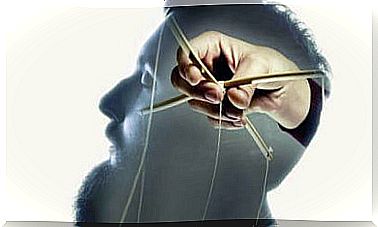Anchor Effect: How Does It Influence Decisions?

Athlete Frank Tankerton stated that “we can only learn if we open ourselves to more sources of information”. The anchoring effect, however, is a cognitive mechanism that can take our mind in the opposite direction.
Are we really free to make a decision based on the information we have? The truth is that there are many factors that affect our choices and one of them is the anchoring effect . Let’s see what it is.
What is the anchor effect?
Have you ever had the feeling that the first information received on a topic seems to be the most important, clear and decisive? The first interpretation of a given news conditions the way of understanding the following ones. It is evident that this is a sensation capable of influencing our final decisions.
The anchoring effect is a form of cognitive bias. It is the tendency to use the first information received on a given topic as a basis for memorizing the others.
In other words, the first data remain anchored in our memory. This does not mean that we will not memorize, understand or adapt everything that follows; rather, it means that the first information has greater force and will guide us in our decisions.

It is clear that this effect has great weight in the decision-making process. It therefore means that, however unconsciously, the first information received is the one that conditions us the most.
Associations of ideas and subsequent memories are also likely to form around the first information received (initial anchor).
Origin of the anchor effect
There are several hypotheses about anchoring, an effect that occurs in all areas of our life.
Let’s start with an example. Imagine having to buy a house. Before doing this, of course, you will see several, you will compare them. However, it will be the first house to act as a point of reference for the others, to bargain, discuss or refuse. Ultimately, to decide.
Perhaps before starting to see the various houses, you had a different idea. There is no doubt, however, that after receiving the first information, it changed. All subsequent information will revolve around the first impression.
There are certainly exceptions. If the second apartment makes a strong impression on you, perhaps you will forget the first one or you will come to consider that the first house is totally out of your reach.
Anchoring and adjustment
We generally try to get away from the anchor when we have to make decisions, but we fail completely. This is demonstrated by the fact that the ultimate decision approaches, in one way or another, the first anchored datum.
Selective accessibility
After anchoring has occurred, the brain evaluates an adequate response. If it is not adequate, it will issue other judgments, but always based on anchored information.
Let’s change our attitude
After anchoring, we change our attitude to adapt to the characteristics of this information. Subsequent answers, therefore, will always be tied to the anchor.
For example, it is possible that starting from the new anchor what previously seemed cheap to us will start to look expensive or vice versa. Think, for example, how much we can pay for a smartphone today. Wouldn’t that have seemed crazy to us a few years ago?

Influencing factors
Some factors help modulate the effect of the anchor, both in form and intensity :
- State of mind. It acts in favor or against the drag effect of the anchor. Depressed people, for example, would tend to be more accurate in fitting information, although other studies suggest their tendency is more passive.
- Experience. A person with culture and training is less susceptible to this phenomenon. However, no one is exempt from its effects.
- Personality. According to studies, the anchoring effect has less hold on more extroverted people than introverted ones.
- Cognitive skills. The higher they are, the lower the effect, although the studies are controversial.
It seems that no one is exempt from the anchoring effect. However, it is up to us, at least in part, to decide to what extent to be influenced.









